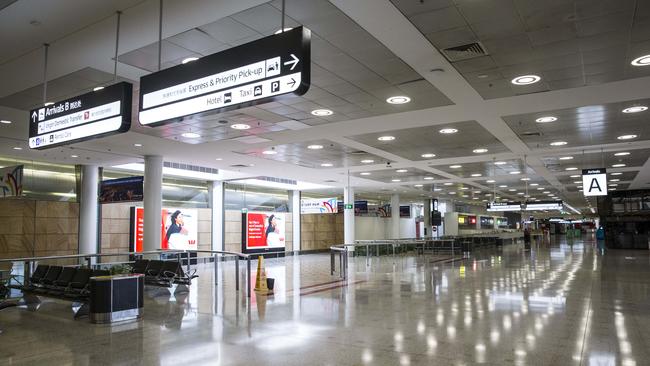Airlines allowed to keep co-ordinating schedules in pandemic
Normally frowned on, co-ordination by airlines will be extended to help maintain regional flights during the pandemic.

Australia’s major airlines have been given the green light to continue co-ordinating schedules on regional routes in recognition of the ongoing impacts of the COVID-19 pandemic.
Under the arrangement approved by the Australian Competition and Consumer Commission, Regional Express (Rex), Qantas and Virgin Australia were allowed to co-operate on 10 routes to ensure services to those areas continued.
That co-operation could involve arrangements such as each carrier on a route operating one daily service with revenue shared between carriers, or an operator suspending flights on a route to allow a competitor to maintain a viable service.
ACCC deputy chair Mick Keogh said the commission recognised that airlines were still facing significant challenges, including exceptionally low demand due to the ongoing impacts of the COVID-19 pandemic.
“We acknowledge that such co-ordination between airline competitors in this way would normally raise competition concerns,” Mr Keogh said.
“However, the extraordinary circumstances mean that co-ordination is in the public interest given the relatively short period for which it will be authorised, and the conditions of the proposed authorisation.”
The ACCC authorisation is conditional on airlines charging fares no higher than those in place on February 1, to address the risk that the reduction in flights could see fares increase.
Mr Keogh said the ACCC would closely monitor the proposed conduct of airlines.
“We anticipate that the arrangements will help support the continuity of essential air services for regional communities on the relevant routes while the pandemic is significantly affecting air travel,” he said.
The 10 routes concerned include Sydney to Dubbo, Wagga Wagga, Albury and Armidale; Melbourne to Mildura; Cairns to Townsville and Townsville to Mount Isa and Adelaide to Whyalla, Kangaroo Island and Port Lincoln.
Statistics released by the Bureau of Infrastructure, Transport and Regional Economics for May showed domestic passenger numbers were down 92.5 per cent on the same time a year ago, and the number of flights was 78 per cent lower than in May 2019.
In real terms, 385,700 people flew on commercial and charter flights in May, compared to 5.12 million 12-months ago.
On average, just over 40 per cent of seats were full on regular public transport services compared to 77.4 per cent a year earlier, and Brisbane was the busiest domestic airport, ahead of Sydney and Melbourne.
Melbourne to Sydney remained the busiest regular public transport route, with 19,000 people travelling between the two cities in May, down 97.5 per cent on a year ago.
Two routes actually saw an increase in load factors in the month, including Adelaide-Port Lincoln, which was up 2 per cent to 59 per cent, and Kalgoorlie-Perth, up 0.1 per cent to 52.9.




To join the conversation, please log in. Don't have an account? Register
Join the conversation, you are commenting as Logout